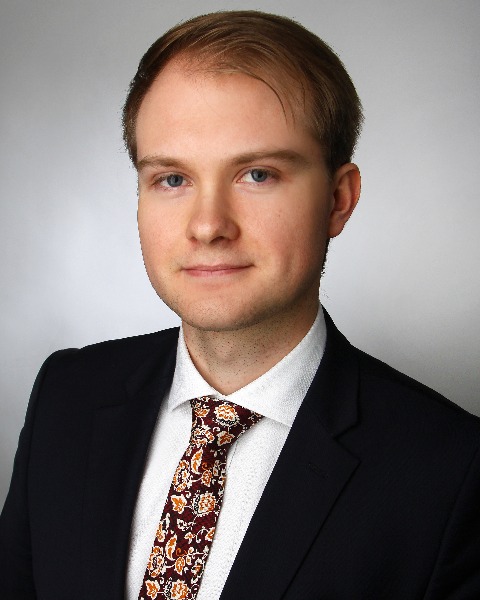
Michał R. Bator, MD (he/him/his)
Doctor - Hematology Resident, PhD Student.
Wroclaw Medical University, Department of Hematology, Blood Neoplasms and Bone Marrow Transplantation. Wrocław, Poland., Poland
Michal Bator, PhD student and hematology resident at the Department of Hematology, Blood Cancer, and Bone Marrow Transplantation at the Wroclaw Medical University, Poland
I have been involved in hematology since my medical studies. I completed the last two years of medical studies as part of the Individual Course of Studies in Medicine, working at the hematology ward at the Wroclaw Medical University (Tutor: Professor Lidia Usnarska-Zubkiewicz, Head of Department Professor Tomasz Wrobel). In 2019, I received my MD diploma. In 2019–2023, I was the beneficiary of the ProHUM project (Interdisciplinary Doctoral School): planning experimental research and creating and optimizing animal experimental models with the possibility of transferring them to clinical trials in the field of human medicine at the Wroclaw University of Environmental and Life Sciences and at the Wroclaw Medical University. I completed numerous scientific internships in research centers in the country and abroad, expanding my knowledge in the field of next-generation sequencing (NGS) and data analysis using advanced mathematical models. From June 2023 to September 2023, I completed a scientific internship at the Department of Hematology at the University of Salamanca, Spain.
In May 2023, I submitted my doctoral dissertation on the role of the gut microbiome in multiple myeloma.
I am the author or co-author of several scientific publications and conference presentations.
My main scientific interests are new therapies in the field of multiple myeloma, the search for new methods of genetic data analysis, the use of advanced mathematical tools in data analysis- including the predictive model, the use of an animal model in medical experiments, the role of the microbiome in the course of multiple myeloma with particular emphasis the role of the gut microbiome in the development of multiple myeloma and the role of the microbiome in CAR-T therapy.
Poster(s):
-
Thursday, September 28, 202312:30 PM - 1:30 PM EEST
